When people at university hear about my previous career in comics, they immediately start wondering how I found my way into social sciences. In this blog post, I will shed light on my path to social sciences.
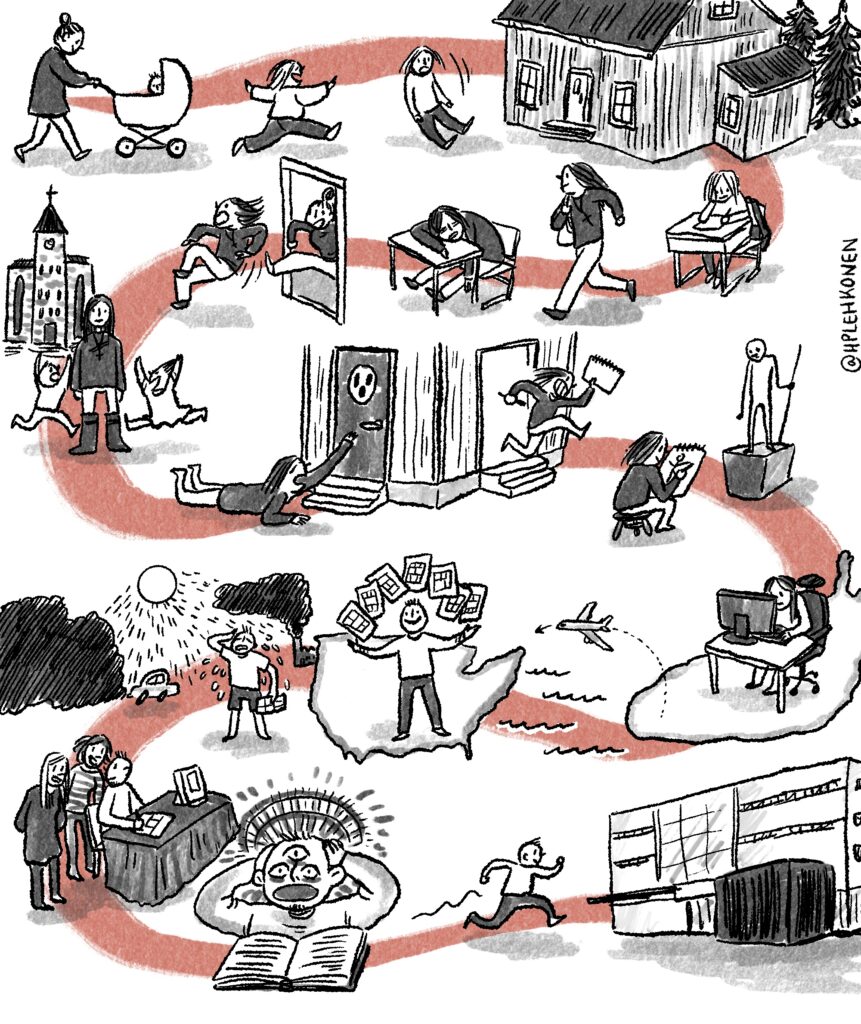
Let’s start from my teenage years. Around the age of 15, I ponder what I want to be when I grow up. My mother works as a sterilization technician in a public hospital, and my father is a truck driver. I am interested in art and social influence among many other things, but the only professions I can name besides traditional working-class jobs are teachers, doctors, and lawyers. I am not particularly interested in being any of these three. I also know that being a member of parliament is a profession, but there is no specific education for that. However, I decide that after living another 15 years, I will run for some election once I find the right party. After high school, I end up studying youth work at a university of applied sciences, as my mother mentions it could suit me since I was active in church youth activities throughout high school.
A few years later, I drop out of youth work studies because I realize I’m not in the right place. I decide to focus fully on art, seeing it as the only way for me to have a broader impact on society. I think to myself that when I run for election in my thirties, being an artist might even benefit me! Since high school, I have been an avid comics fan, both reading and drawing them (thanks to my friend Raakel), and I go to study at Liminka School of Arts for a year (with Raakel). After art school, I move to Vantaa, start an internship at the Helsinki Comics Center, which was in Arabia at the time, and draw feminist comics. I also apply to Metropolia University of Applied Sciences to study graphic design. At that time, I am in a relationship, and once I get into Metropolia, my partner and I agree that he will support me financially so that I can focus on art for the next five years. Our agreement is that if I do not start making a living from art within those five years, I will look for other work and art will become just a hobby for me.
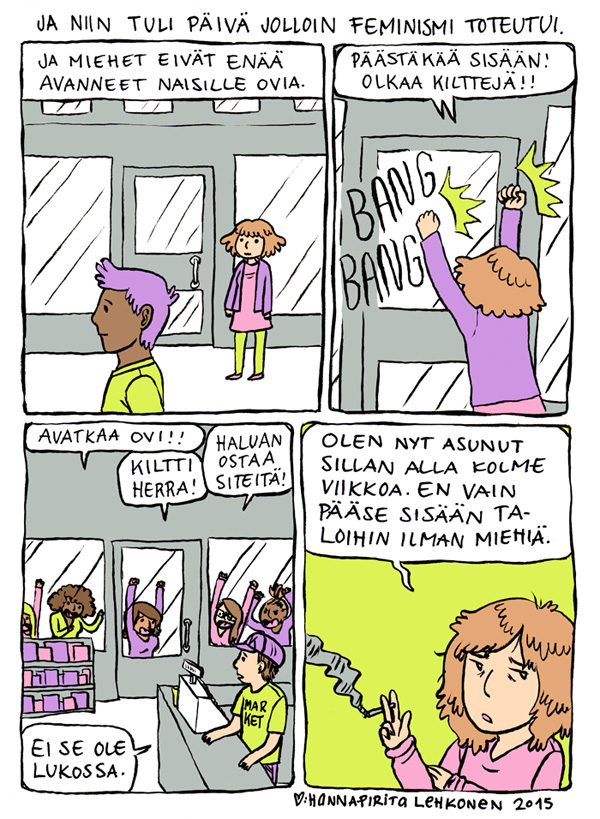
In my second year at Metropolia, I have my big breakthrough and get a job with a Korean webcomic publisher, which I often describe as the “Netflix of comics.” I did not need the full five years to make a living because I am now creating comics for the publisher’s US division. I also drop out of school due to lack of time. I do this work for four years. I write and draw my own comics, but I have a few assistants to help with coloring. My first comic is a queer comedy set in a future Finland called “Immortal Nerd.” The second is a queer romance set in a small village in modern-day Finland, Kauhajoki, called “Life Outside the Circle.” I am about to start my third story, where a businessman has a nervous breakdown and decides to become his own manic pixie dream girl to save himself, but I never start the comic. After four years, I am tired of the US work culture, which is steeped in growth, capitalism, and burnout culture. I start my own business in Finland and instead of focusing on growth, I begin doing science communication through comics.
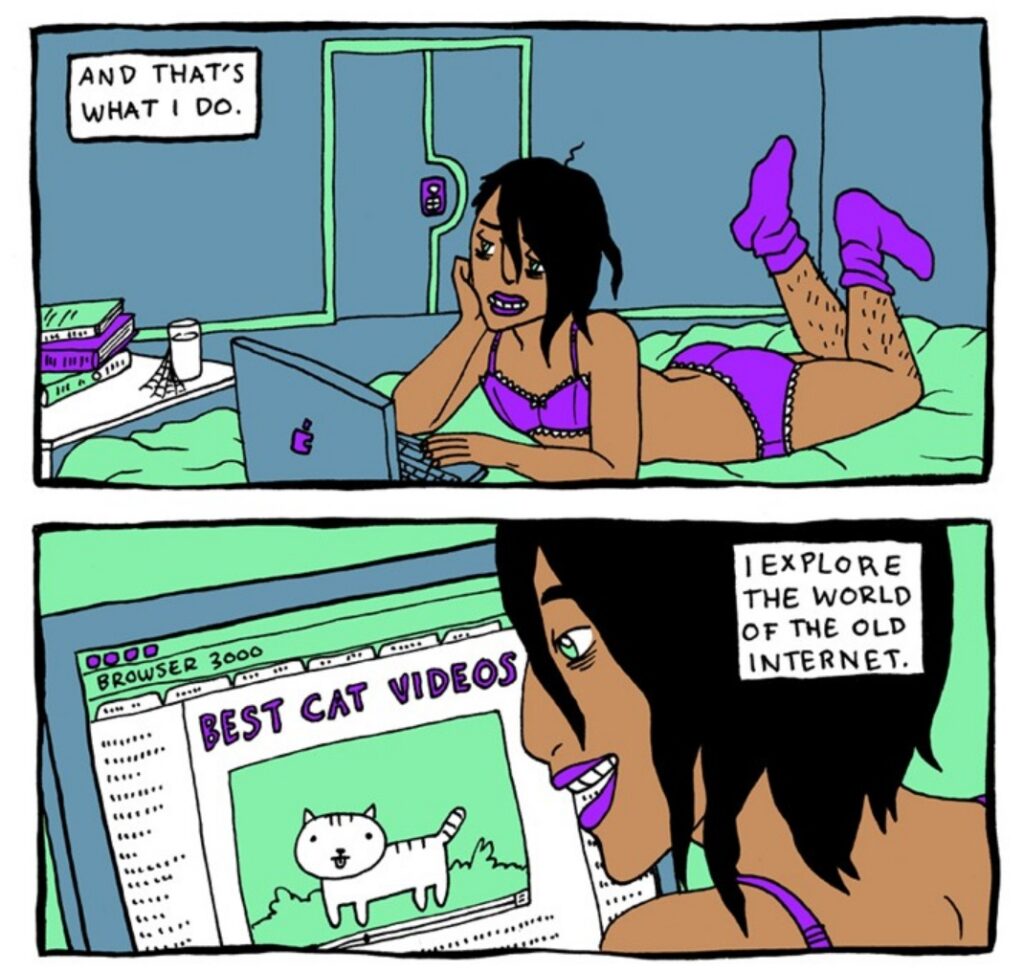
At this point, I realize I am 30 years old and decide to fulfill the goal my teenage self set. Fortunately, I have found a suitable party almost by accident, so I run as a candidate for the Left Alliance in the Vantaa municipal elections and hate every moment of it. I try again in the regional elections, but unfortunately, I have to admit that this kind of social influence does not suit me. The worst part of campaigning is that I do not like being in the spotlight. I am eager to talk about topics that are important to me, but in campaigning, it is also important to be visible through your own personality. I find it unpleasant and want to be visible only through the cause I represent. I do not run in the parliamentary elections and breathe a sigh of relief because after being a candidate in the municipal and regional elections, I know that I did not end up betraying my 15-year-old self.
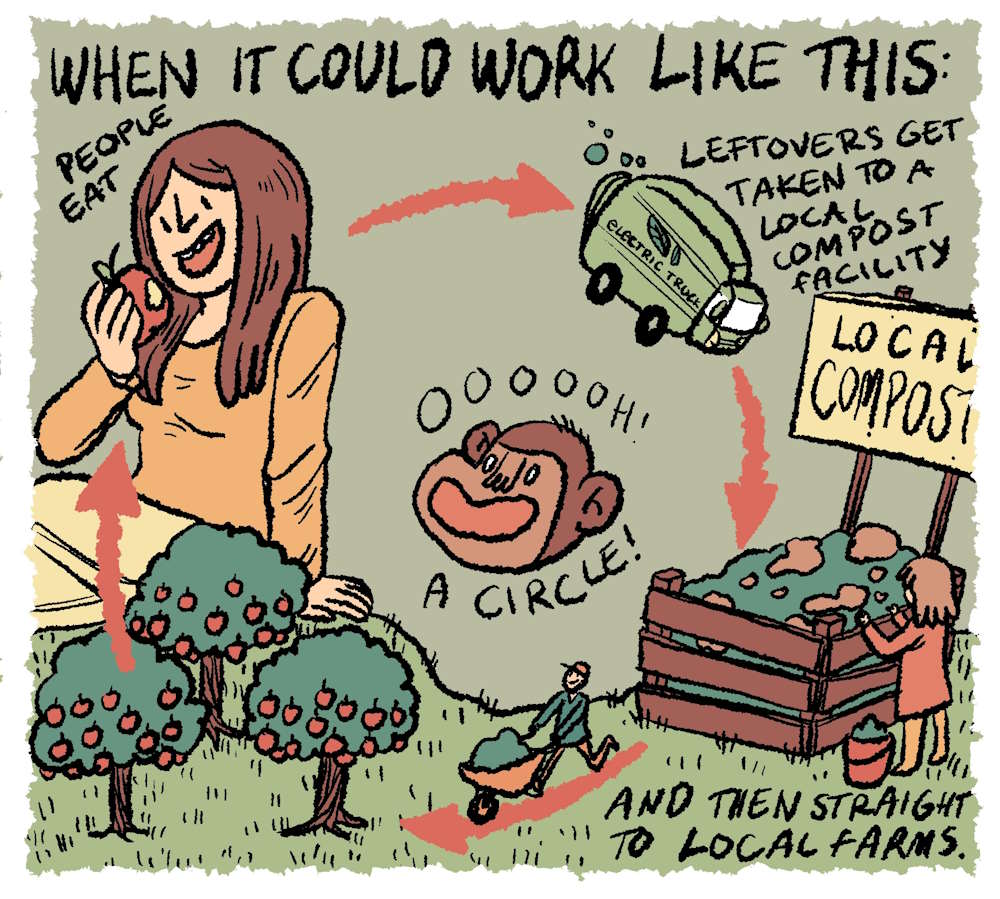
Although I initially focus on climate science and biodiversity in my science comics, I end up working on the CrimScapes project through my work. The project conducts ethnographic research on various criminalized issues across Europe. In Poland, for example, abortion rights are criminalized! The Finnish research deals with the criminalization of infectious diseases, especially HIV transmission. I hold several workshops for the project’s researchers, edit the project’s ethno-graphic novel, and draw a comic with doctoral researcher Juulia Kela on the criminalization of HIV in Finland. During the first workshop, I know that I have found my field. Seeing the work Juulia does for her dissertation, I know I want the same. The workshop happens to coincide with the spring 2022 university joint application period, so I immediately submit my application. Before sending my application, I spend a week intensively familiarizing myself with social sciences and realize that I have already read several works by social scientists! In the joint application, I put the University of Turku as my first choice because one of my partners is from Turku, the Future Research Network Academy is located in Turku, you can do a master’s in economic sociology at the University of Turku, and one of my favorite books (“Ulkonäköyhteiskunta”) is largely authored by researchers from the University of Turku. My second choice is the University of Helsinki because it is close to Vantaa.
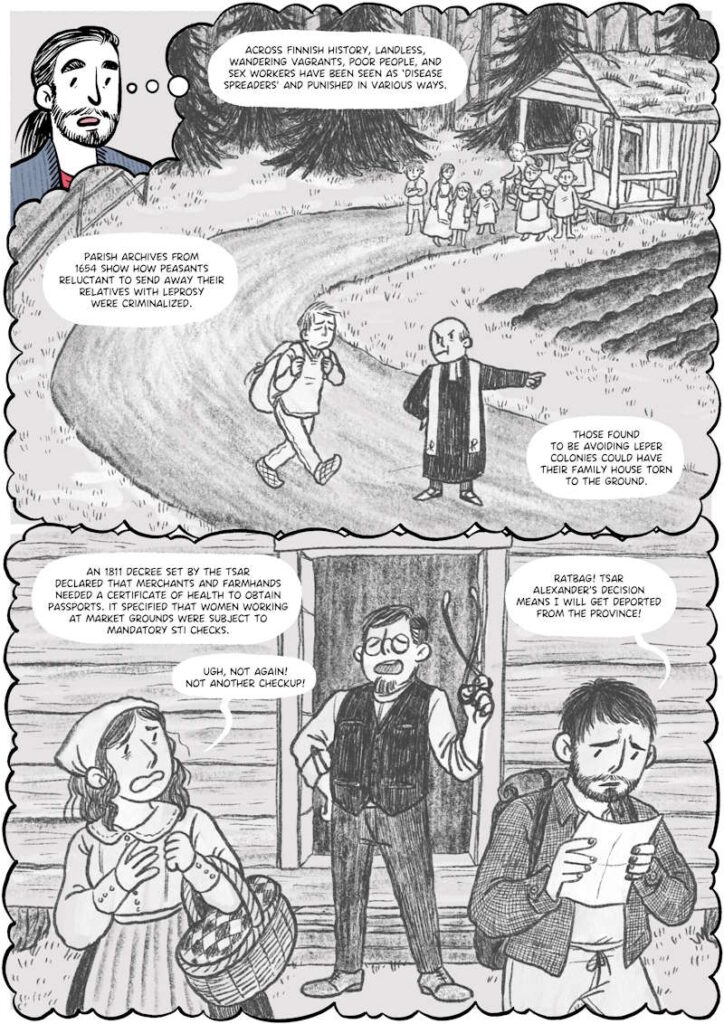
Because I have already studied all sorts of things and completed my matriculation exams long ago, I have to take an entrance exam course to get in. The course only reinforces my feeling that this field is made for me. I end up on the waiting list but receive happy news of being accepted at the end of the summer. Although I start my studies in the fall of 2022 from the same bachelor’s degree as everyone else, in my mind I am already working on my dissertation. This is how I still think, although I will not start my bachelor’s thesis until the fall.
At 15, I did not know that generalist fields like social sciences even existed. I longed for societal reflection and influence, and continuous learning, which could be combined with artistic methods. At the same time, I imagined that such a profession did not exist, and because I was part of the working class, I had to settle for a job that just pays the bills. I have not become enlightened or turned into a perfect achiever, I just got lucky. Now, I know that one of my partners earns enough that I can just come up with a profession out of thin air and play around with it at the intersection of art and science as much as my heart desires.